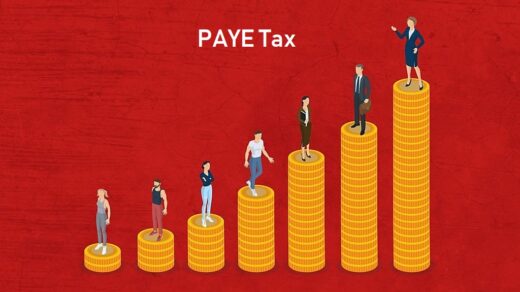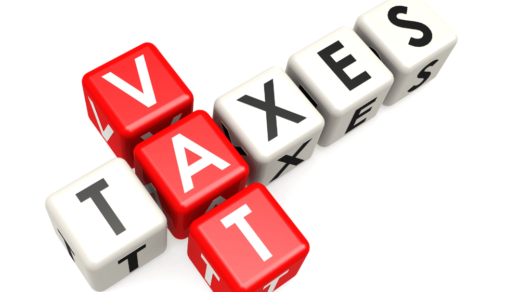In Kenya, companies and partnerships are subject to various forms of income tax, each tailored to specific sources of income.
This article provides a comprehensive overview of the different methods of collecting income tax from companies and partnerships, including the diverse sources of income subjected to taxation.
Sources of Income Subject to Income Tax
Income Tax in Kenya is imposed on a variety of income sources, including:
- Business income from any trade or profession
- Employment income
- Rent income
- Dividends and Interests
- Pension income
- Income from a Digital Marketplace
- Natural resource income, among others
Methods of Collecting Income Tax
Companies and partnerships in Kenya experience different methods of income tax collection based on their sources of income. These methods include:
a. Corporation Tax
Corporation Tax is a form of income tax levied on corporate bodies such as Limited companies, Trusts, and Co-operatives. It is imposed on their annual income. Companies based outside Kenya but operating within the country pay Corporation Tax on income accrued within Kenya. However, partnerships do not pay Corporation Tax.
b. Pay As You Earn (PAYE)
PAYE is a method of collecting tax at the source from individuals in gainful employment. Companies and partnerships with employees are required to deduct tax according to the prevailing tax rates from their employees’ salaries or wages on each payday for a month and remit the same to KRA on or before the 9th of the following month.
c. Withholding Tax (WHT)
Withholding Tax is deductible from certain classes of income at the point of making a payment to non-employees. It is deducted at the source from various income sources, including interest, dividends, royalties, management or professional fees, commissions, pensions, and rent received by non-residents. Companies and partnerships making such payments are responsible for deducting and remitting the tax to the Commissioner of Domestic Taxes.
d. Advance Tax
Advance Tax is paid in advance before a public service vehicle or a commercial vehicle goes for the annual inspection.
e. Installment Tax
Installment Tax is paid by persons who have tax payable for any year that amounts to Kshs. 40,000 and above.
- Rental Income Tax
Rental Income Tax is charged on rental income received from renting out property, with taxation depending on whether the property was used for residential or commercial purposes. All individuals, partnerships, and companies renting out property are required to pay income tax on rent received. KRA appoints agents to withhold and pay a percentage of the gross rent as tax.
- Value Added Tax (VAT)
Value Added Tax is charged on the supply of taxable goods or services made or provided in Kenya, as well as on the importation of taxable goods or services. Companies and partnerships with annual revenue exceeding Kshs. 5,000,000 must register for VAT. KRA appoints agents to withhold and pay VAT on supplies made.
- Excise Duty
Excise Duty is imposed on goods manufactured in Kenya or imported into Kenya and specified in the 1st schedule to the Excise Duty Act, 2015. Companies and partnerships dealing in excisable goods and services, such as mineral water, juices, cosmetics, and mobile cellular phone services, are required to pay excise duty.
- Capital Gains Tax (CGT)
CGT is charged on the whole gain that accrues to a company or an individual upon the transfer of property situated in Kenya, regardless of whether the property was acquired before 1st January 2015. It took effect on 1st January 2015.
- Agency Revenue
Agency Revenue includes Stamp Duty and Betting Tax.
a. Stamp Duty
Stamp Duty is a tax charged on the transfer of properties, shares, and stock. It is collected by the Ministry of Lands, which has seconded the function to Kenya Revenue Authority (KRA).
b. Betting Tax
Betting Tax is chargeable on the gross gaming revenue (GGR) of a bookmaker at a rate of 15%, as provided by Section 29A of the Betting, Lotteries and Gaming Act, 1966. Betting, gaming, and lottery businesses are required to withhold tax and remit 20% of the winnings being paid out to winners. Excise Duty on Betting is chargeable at the rate of 20% of the amount wagered or staked, commencing 7th November 2019.
- Turnover Tax (TOT)
Turnover Tax (TOT) is a tax charged on the gross sales of a business as per Section 12(c) of the Income Tax Act. It was first introduced in the Finance Act 2006, replaced by Presumptive Income Tax in the Finance Act 2018, and then reintroduced in the Finance Act 2019. TOT is payable by resident persons whose gross turnover from business is more than Kshs. 1,000,000 and does not exceed or is not expected to exceed Kshs. 50,000,000 in any given year. TOT does not apply to persons with business income below Ksh. 1,000,000 and above Kshs. 50,000,000 per annum, rental income, management, professional and training fees, and any income subject to a final withholding tax under the Income Tax Act. Eligible taxpayers are advised to log onto iTax, add the TOT obligation, file monthly returns, and make payments. A taxpayer within the specified threshold, choosing not to be taxable under TOT, shall be deemed to have informed the Commissioner of this choice by not registering for TOT.
The rate for Turnover Tax is 1% on gross monthly sales, and expenses are not deductible. TOT is filed and paid on a monthly basis, with a late filing penalty of Kshs. 1,000 per month (wef 25/04/2020), a late payment penalty of 5% of the tax due, and interest on unpaid tax at 1% of the principal tax due.
Emerging TOT trends include the tax rate reduction from 3% to 1%, the removal of Presumptive Tax (wef 25.04.2020), and the change in the filing regime from a quarterly basis to a monthly basis. It is not mandatory for one to be registered for both Turnover Tax and VAT, and for taxpayers with various specified sources of income, choosing not to be subject to TOT is an option, provided a notice to the Commissioner is done.




